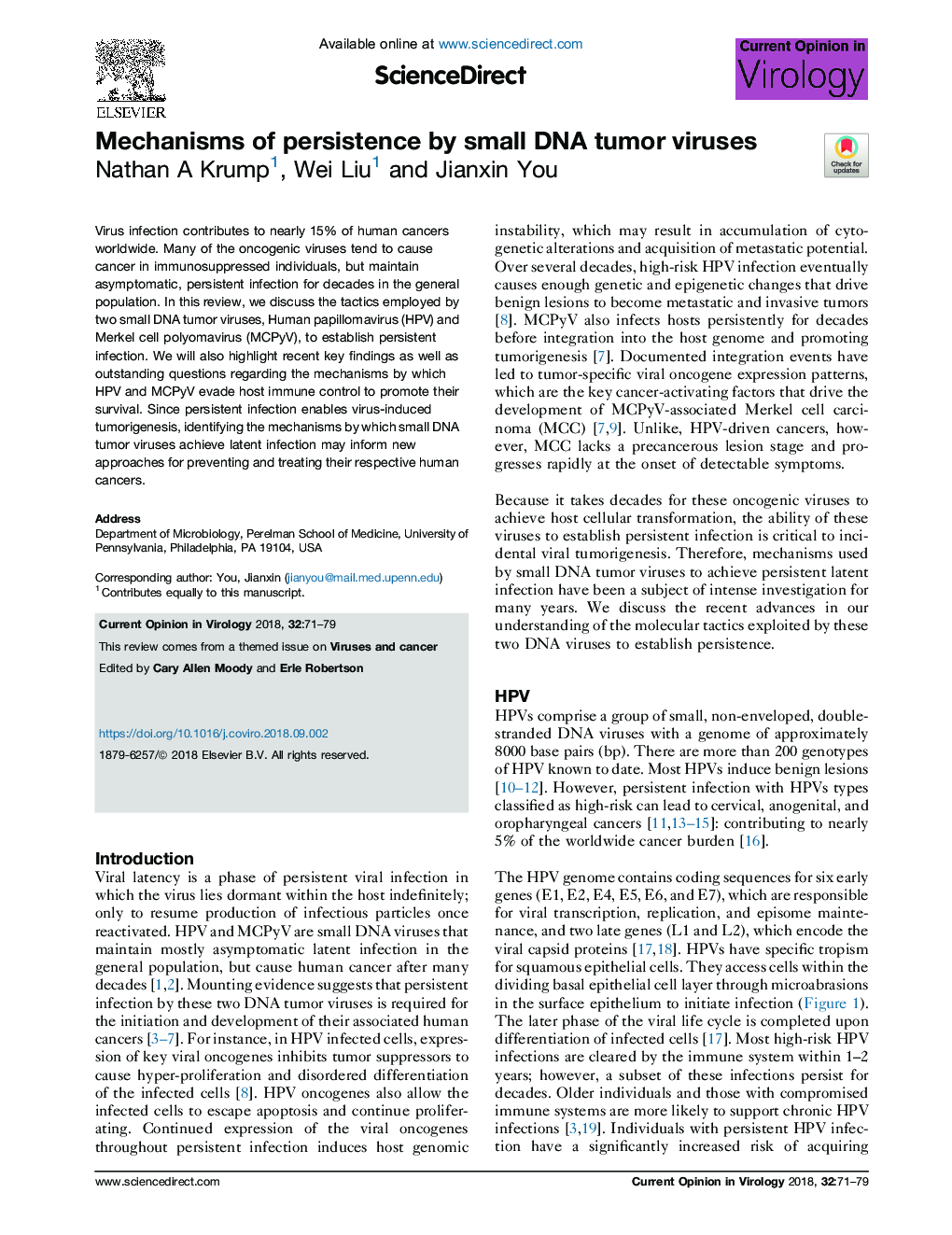| Article ID | Journal | Published Year | Pages | File Type |
|---|---|---|---|---|
| 11033966 | Current Opinion in Virology | 2018 | 9 Pages |
Abstract
Virus infection contributes to nearly 15% of human cancers worldwide. Many of the oncogenic viruses tend to cause cancer in immunosuppressed individuals, but maintain asymptomatic, persistent infection for decades in the general population. In this review, we discuss the tactics employed by two small DNA tumor viruses, Human papillomavirus (HPV) and Merkel cell polyomavirus (MCPyV), to establish persistent infection. We will also highlight recent key findings as well as outstanding questions regarding the mechanisms by which HPV and MCPyV evade host immune control to promote their survival. Since persistent infection enables virus-induced tumorigenesis, identifying the mechanisms by which small DNA tumor viruses achieve latent infection may inform new approaches for preventing and treating their respective human cancers.
Related Topics
Life Sciences
Immunology and Microbiology
Virology
Authors
Nathan A Krump, Wei Liu, Jianxin You,
